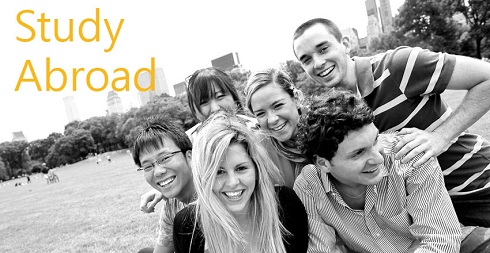2021 In today’s world, there is no dearth of opportunities when it comes to studies, provided that prospective students have the required information. Many would like to go overseas in order to get a wider taste of academia but this decision is fraught with challenges. The biggest one is funding, of course! So, what could be the best way to begin?
Exchange Programs
An affordable way to go overseas might be through an exchange program where a part of the course could be undertaken at a different University. There might not be many options but it is always good to explore with your college. For example, Lady Shri Ram College or LSR (Delhi University) has exchange programs with Universities like a Trobe University (Australia) the National University of Singapore, to name a few. The idea is to encourage student mobility. Then, there are student exchanges that are sponsored by local Rotary clubs. These exchanges target students in the age range of 15 to 19 years. Get in touch with your local rotary club in order to know more. It can be very helpful to get guided.
University-specific Funding
Universities across the globe offer financial aid for international students albeit on a competitive basis. Some are even targeted at students with special backgrounds. Many scholarships are advertised for only students who are from developing countries (e.g. Chevening Partner Awards for Law and Safety Reporting Fellowships for Journalists). This can bring down the competition to a certain extent. University-specific websites can be explored in order to collect information. Students can apply to as many schemes as possible. For instance, sports-based scholarships are very common in the United States. Once you get through a University by securing scholarships, there might be teaching and research assistantships available. These can be used as a top-up to scholarships and the other benefit is associated with teaching or work experience.
Help from Employers
In many cases, potential students are able to persuade their employers for sponsorship. These days, companies and organizations are happy to extend support for staff training and development. There could be budgets for personal and professional development (PPD). However, employers are receptive to sponsorship only if they are convinced that further training of their employees could enhance the workplace and lead to more profit generation. Successful employees have to sign an agreement that ties them to the company upon the completion of the sponsored course.
Research Opportunities
Going in for a master’s or an undergraduate degree may not be the only way to transcend the boundaries of one’s home country. Many students are opting for research such as a Ph.D. program or even a habilitation (that could only be done after one has obtained a Ph.D. degree and are known as second PhDs in laymen language). Habilitations (or, to make suitable) are super-specialized work where one writes a thesis that builds upon one’s defended Ph.D. thesis and these positions are very competitive although highly paid. It is only possible to do habilitations in Europe although it was traditionally established within the German education system. In the rest of the world, equivalent positions are called ‘post-doctoral and are treated on par with other academic positions beyond Ph.D.
Women candidates should keep in mind that there might be special positions that are only reserved for them because males are already highly represented in academia. With this as a background, candidates can search through the EURAXESS database for a wide range of positions and scholarships that are advertised on a regular basis. EURAXESS, as the name suggests, advertises European positions. A few of the popular scholarships include:
-
Feodor Lynen Research Fellowship for Postdoctoral Researchers
-
Marie Curie Funding Schemes
-
Grants made available through Max Weber Foundation
Salary Comparisons Across Europe
An approximate comparison shows that postdocs specializing in life sciences and working in the United States and Canada are highly paid. German and Dutch candidates also receive high salaries when it comes to Europe. However, pays may not be generous in Spain, Italy, and France (western parts of Europe). On the other hand, Eastern European postdocs are not paid well. An average postdoc working in Australia can expect to earn just over AUD70,000 (US$53,846) and NZD70,000 in New Zealand. Hopefully, this gives a rough estimate for candidates thinking of moving in this direction.
The career path of a researcher or a scientist may be very different from that of a professional who works in the corporate world. Agreed that there are no shortcuts to success but when it comes to working in academia then one must be intrinsically motivated as the salaries and the perks might not be equivalent to the academic world. However, people can expect flexibility and scope for lots of creativity. What really matters, in the end, is what is more suitable for one’s interests and inclinations! Choose thoughtfully and enjoy your work.




















































